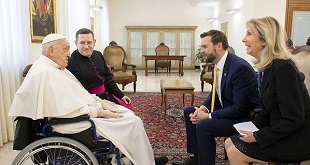
Essay 2 of 7: How Uganda Forgot Its Citizens
COMMENT | Gertrude Kamya Othieno | In a healthy democracy, citizenship implies both responsibility and entitlement. It is a mutual contract: citizens invest trust, taxes, and participation, while the state delivers services, justice, and opportunity. But in Uganda, this social contract has been quietly rewritten. Over time, the citizen has not been empowered but converted into a client, a petitioner, a beneficiary in a favour economy.
This transformation did not happen overnight. It grew out of colonial strategies that undermined community-based governance and later deepened in the post-independence period. As institutions weakened and public goods became scarce, leaders discovered that loyalty could be more easily secured through personalised rewards than through policy or performance. The system shifted from representation to transaction, replacing older traditions of mutual obligation with a logic of dependence.
Today, this clientelist culture is so entrenched that many Ugandans no longer expect to receive anything from the state unless it is tied to a political patron. Politicians are not assessed by their record or ideas, but by their generosity, the school fees they pay for a constituent’s child, the burial they attend, the envelope they deliver at a local fundraiser. In fact, leaders are often introduced not as representatives but as abafuzi baffe, our benefactors.
In this system, rights become favours. Accountability becomes optional. A newly constructed borehole may carry the name of an individual leader rather than the responsible ministry. Constituents speak of “gifts” from MPs, not public services delivered through public funds. This logic reconfigures the entire relationship between the governed and those in power. It teaches citizens to ask, not what the system can do, but who within the system can be approached.
Voting itself becomes a transactional act. Politicians arrive with sacks of sugar, rice, or cash, often on the eve of elections. The vote is not cast for a vision or a plan; it is exchanged for what one can get now. Manifestos are largely irrelevant. What matters is who is most “generous,” most visible, or most accessible.
Meanwhile, public services that should be universal, such as healthcare, education, and justice, are increasingly accessed through personal connections. Knowing someone “on the inside” becomes more valuable than understanding one’s rights. Bureaucracy is not about the process – it is about negotiation. This reshapes not only political life but everyday life.
But perhaps the most dangerous aspect of clientelism is cultural. It teaches citizens to wait, to beg, and to depend. It discourages collective organising because it thrives on fragmentation. If every citizen is a client, then no one is a peer. Social cohesion weakens, and so, too, does the potential for accountability. Those who speak out are often dismissed as bitter or ungrateful. Silence becomes strategy.
This is not just a political system; it is a psychological condition. One where the governed internalise their marginalisation, where public participation is reduced to occasional applause and selective outrage. Leaders no longer feel obligated to the people; they feel entitled to loyalty.
And yet, many Ugandans have never known another way. The system feels cultural, even inevitable. But it is neither. It is the result of design – of repeated decisions to exchange empowerment for control and to substitute civic education with spectacle and performance.
In the next essay, we examine the cost of that substitution. What happens when citizens are not taught how governance works, what their rights are, or how to hold leaders to account? We turn to Uganda’s education system, or rather, what’s missing from it, and trace the quiet death of civic education.
****
 Gertrude Kamya Othieno | Political Sociologist in Social Development (Alumna – London School of Economics/Political Science – LSE) | Affiliated to Global People’s Network (GPN) – A Socio-Cultural Movement | Email – gkothieno@gmail.com
Gertrude Kamya Othieno | Political Sociologist in Social Development (Alumna – London School of Economics/Political Science – LSE) | Affiliated to Global People’s Network (GPN) – A Socio-Cultural Movement | Email – gkothieno@gmail.com
 The Independent Uganda: You get the Truth we Pay the Price
The Independent Uganda: You get the Truth we Pay the Price



